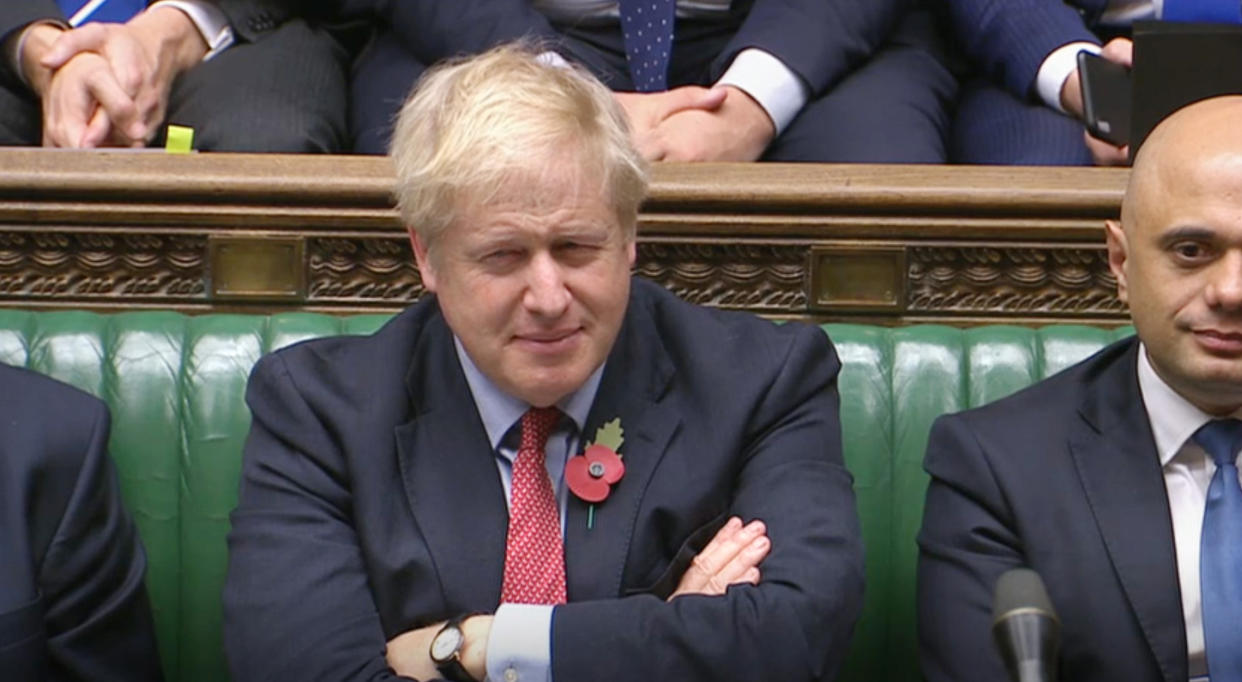General election confirmed on December 12 after MPs vote in favour of snap poll

Britain is heading to the polls for the third time in five years after MPs voted in favour of Boris Johnson’s plan for a December general election.
MPs backed the Prime Minister’s Early General Election Bill by 438 to 20 after Jeremy Corbyn announced his support earlier on Tuesday.
The election will be held just 13 days before Christmas on Thursday December 12. A Labour amendment to push the date back to 9 December was rejected.
Parliament will now be dissolved at one minute past midnight next Wednesday, leader of the Commons Jacob Rees-Mogg confirmed, after which the parties will then begin campaigning almost immediately.

The election means parliamentary scrutiny of the Brexit deal agreed by the Prime Minister last week will be temporarily abandoned, with campaigning taking precedence.
Mr Johnson, who was defeated in three previous attempts to call an election, had earlier declared the need for a “new and revitalised” Parliament which is able to deliver Brexit.
The election bill was finally able to pass on Tuesday after Mr Corbyn backed down and announced that Labour’s conditions to back the move had been met.
The Labour leader tweeted a video shortly after the result, saying now is the “time for change”.
The General Election has just been called.
It's time for real change. pic.twitter.com/aiUwhxm5K6— Jeremy Corbyn (@jeremycorbyn) October 29, 2019
READ MORE FROM YAHOO NEWS UK:
How to register to vote: Step-by-step guide as Boris Johnson calls for December poll
Tory 'Spartan' Steve Baker Drops Call For Election Deal With Nigel Farage's Brexit Party
Former Tory minister Sam Gyimah: I can take Kensington for the Lib Dems
Mr Corbyn told his shadow cabinet the party would launch the “most ambitious and radical campaign for real change our country has ever seen” now a no-deal Brexit was “off the table”.
Labour put forward amendments to give MPs the chance to bring in votes for 16 and 17-year-olds and EU citizens with settled status, but they were not selected to be voted on by Deputy Speaker Sir Lindsay Hoyle.
A Number 10 source had warned that the Government would pull the Bill if the amendments to change the voting rules succeeded.
What could happen in an election?
As it stands, Mr Johnson may struggle to win a majority in the December General Election.
The Brexit Party is likely to try and hammer the Tories over Mr Johnson’s pledge that he would “rather be dead in a ditch” than ask for an EU withdrawal delay beyond October 31.
After two very shaky general elections, the Lib Dems have a new, untested, leader in the form of Jo Swinson but have been riding higher in the polls.
The SNP is also expect to perform well against the Tories in Scotland.
In 2017, Labour stormed back from 24 points behind in the polls to come close to drawing level with the Conservatives in the popular vote, but since then Mr Corbyn’s image has been rocked by his stance on Brexit and rows over how he has handled allegations of anti-Semitism within the party.
What does this all mean for Brexit?
Brexit will certainly be the big flashpoint as the major parties have much more pointed policy stances than they did in 2017.
The Tories would be pushing the amended Withdrawal Agreement Mr Johnson secured with Brussels, which all wings of the party have, grudgingly, united behind.
If the Tories secure a majority Mr Johnson could push through his Withdrawal Agreement Bill (WAB) – House of Lords willing – and under the so-called “flextension” agreed with Brussels the UK could quit the EU on December 31, rather than the currently scheduled exit date of January 31.
The European Parliament would also need to ratify the deal before the end of December for this to happen.
Labour wants to renegotiate that deal and then put the result to a new referendum, and the Liberal Democrats seek to revoke Brexit without the need for a fresh national poll on the issue.

 Yahoo News
Yahoo News 
